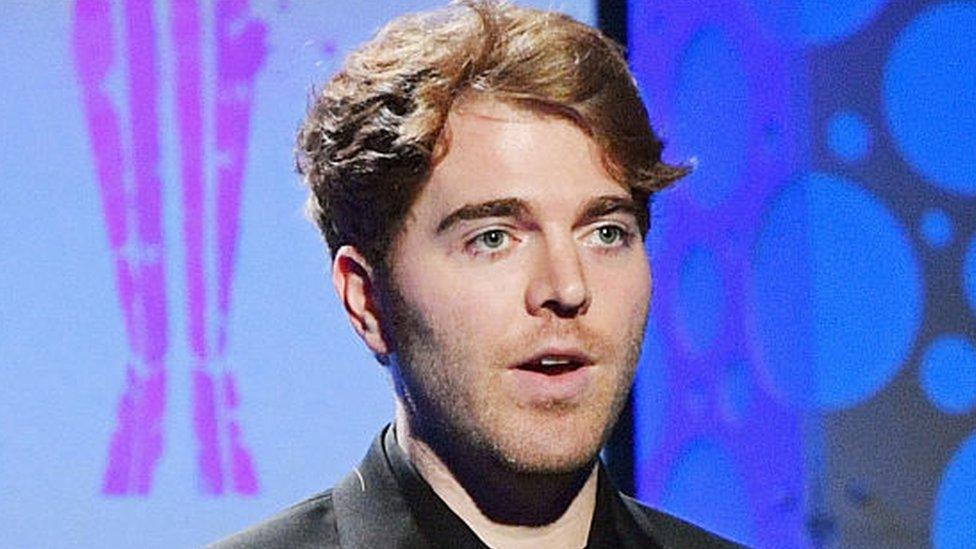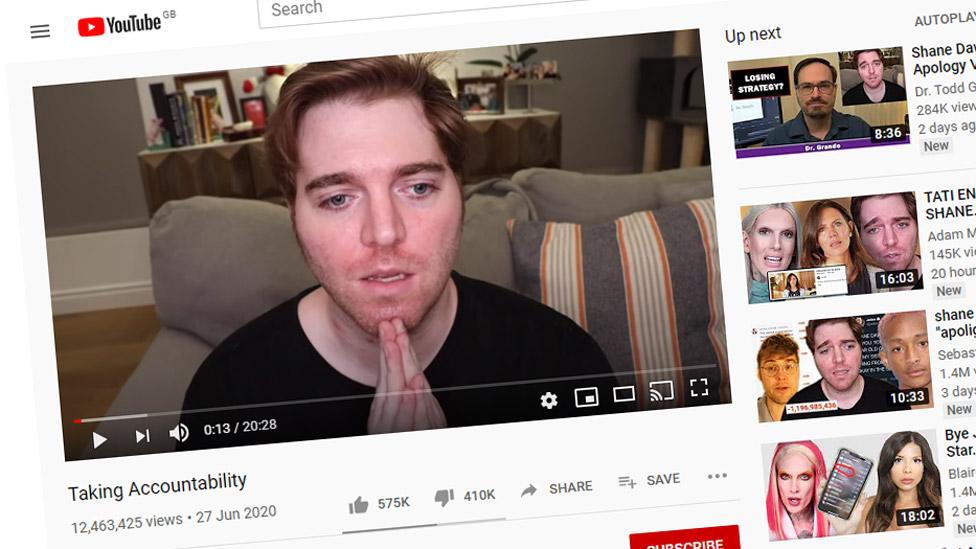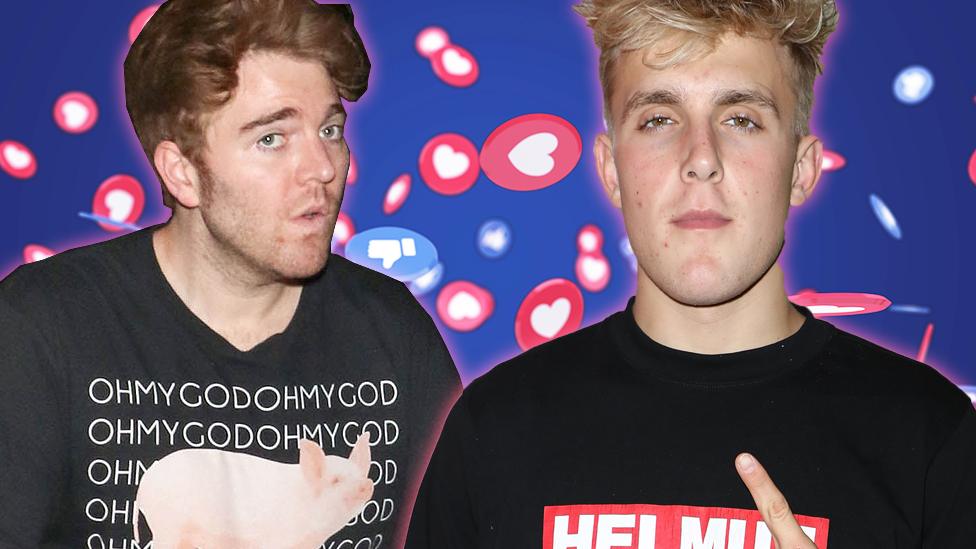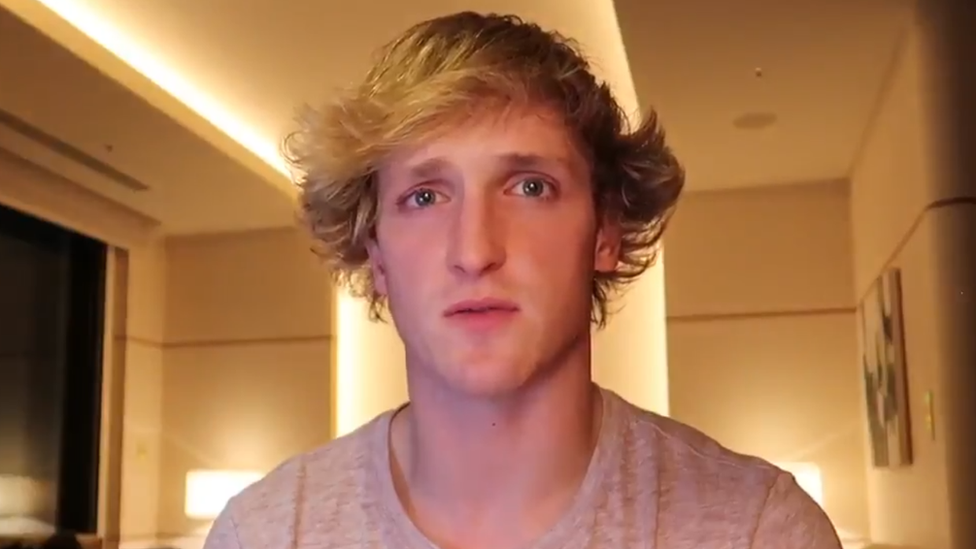YouTube cuts off Shane Dawson's ad money
- Published

YouTube has stopped allowing Shane Dawson to make money from adverts on his three channels, which have 34 million subscribers between them.
The decision comes after the vlogger apologised for having uploaded multiple offensive videos, including appearing in blackface and using racial slurs.
On Friday, Dawson posted a video, external titled Taking Accountability, in which he apologised for such content.
"I should lose everything," he said. "I have put so much hate on the internet."
Dawson became one of the streaming giant's original stars after launching ShaneDawsonTV in 2008, building a reputation as an online shock jock of sorts.
The 31-year-old has 22.4 million subscribers on his main channel, but has lost almost a million subscribers in the past month, according to tracker Socialblade.
In the past, he has also posted videos insulting people living with disabilities, and joked about paedophilia and hypothetically murdering a woman.
Controversies
YouTube confirmed to the BBC on Wednesday that it had indefinitely suspended monetisation on Dawson's three channels.
According to the Google-owned platform, the impact and nature of his videos warranted taking action.
The move comes after US retailer Target announced it was "in the process of removing" Dawson's books, including I Hate Myselfie: A Collection of Essays by Shane Dawson, from its stores.
On Tuesday, fellow YouTuber Tati Westbrook published a video of her own, external accusing Dawson and another vlogger of having manipulated her.
Dawson was also criticised by actress Jada Pinkett Smith and son Jaden after an inappropriate video resurfaced relating to daughter Willow, made when she was aged 11.

Shane Dawson's apology video has been viewed 12.5 million times
According to TubeFilter, external, which first reported YouTube's action, the platform has taken similar steps in the past against Logan Paul after he posted a video showing an apparent suicide victim in Japan, and after JayStation faked his girlfriend's death.
Journalist Chris Stokel-Walker, author of YouTubers, told BBC Radio 4's Media Show: "We're seeing a change in the dynamics here, an acknowledgement that things we maybe once pushed under the carpet should no longer exist."
YouTube's move comes as Facebook faces a damaging boycott by advertisers over how the social network deals with hate speech.
Mr Stokel-Walker said: "YouTube have $15bn (£12bn) of ad revenue every single year. They had an issue in 2017 when all the big advertisers pulled out from YouTube.
"So I think probably they're seeing what's happening to Facebook and going, there but for the grace of God go I."

Follow us on Facebook, external, or on Twitter @BBCNewsEnts, external. If you have a story suggestion email entertainment.news@bbc.co.uk, external.
- Published3 October 2018

- Published11 January 2018
